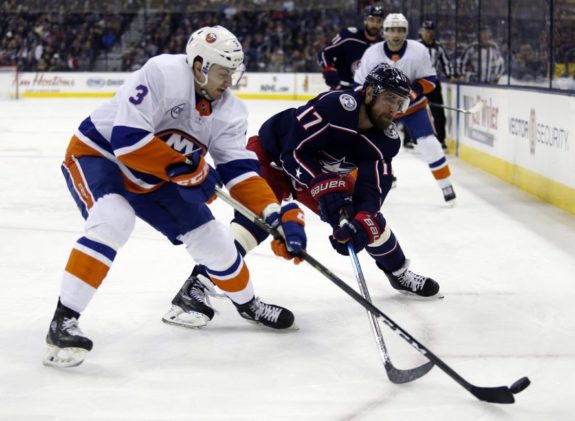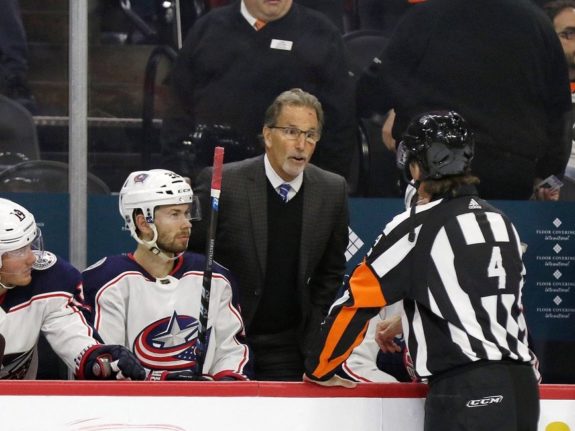With the COVID-19 pandemic raging, the NHL has hit the ‘Pause’ button. It’s unlikely that the league will be able to schedule both the remainder of the 2019-20 regular season and the Stanley Cup Playoffs in their current formats. One horrible scenario has North America on ‘lockdown’ for months, even extending into what would be the 2020-21 regular season. Let’s take a more hopeful position and envision hockey resuming sometime in May. That timeline may be overly optimistic, but if the NHL intends to award the Stanley Cup for the 2019-20 season, it needs to have a plan in place to determine which teams make the playoffs, regardless of when teams again hit the ice.

The regular season was scheduled to end on April 4, so the playoffs would have been well underway in May. However, if the NHL resumes in May (or later), how will they determine which teams make the playoffs? It would be unfair to start the 2020 Playoffs by simply taking the standings as they were when The Great Pause of 2020 (as I call it) was declared. Not all teams had played the same number of games, so some teams had more chances to earn points than other teams.
Related: Coronavirus Hitting the Hockey World Hard
The difference in games played/points earned is especially important for teams competing for wild-card spots. In the Eastern Conference, the Columbus Blue Jackets hold the second wild-card spot with 81 points, but they’ve played two more games than the New York Islanders, who have 80 points. (Current NHL Standings can be found here)
Truncate the Season to 68 Games
Rather than trying to finish an equitable regular season by adding games, the NHL could truncate it to ensure that every team has played the same number of games. This would also eliminate the need for “play-in” games for teams on the playoff bubble. Both the Islanders and the Carolina Hurricanes have played 68 regular-season games, the fewest in the league. Why not use that as the benchmark and chop off every team’s season at the 68-game mark? In the case of the Blue Jackets, who have played 70 games, the last two games would be dropped from their schedule and their results.

Their final two games were a loss to the Edmonton Oilers (Game 69) and a win over the Vancouver Canucks (Game 70). Discarding that victory over the Canucks would cost the Blue Jackets two points, from 81 to 79 points. Ouch! Suddenly, instead of being a point ahead of the Islanders for the last playoff spot, they would be one point behind.
Related: Worst Free Agent Signings in NHL History
Painful for the Blue Jackets? Yes. Fair to the Islanders? Yes. Good for the integrity of the league and its record book? Absolutely. After all, this would not be the first truncated season that produced a Stanley Cup winner. (Take a look at Damien Romaine’s story for a look back at the 2012-13 NHL lockout.) The 2012-13 post-lockout season was planned as a 48-game season, while 2019-20 was scheduled for a full slate of 82 games per team. Trimming to 68 games does ensure that all teams have the same number of games that count toward the standings, even though some teams actually played more games.
Retroactively truncating the season might raise some questions, such as “If my team had only known, they would have taken (such-and-such) game more seriously!” Really? Aren’t teams (and players) supposed to take every game completely seriously? Or maybe someone might think “If our coach knew the playoffs were on the line, he would have sent out a different player during the shootout.” Right, go ahead and second-guess a coach like John Tortorella to his face.

There are a number of reports of players considering plans for a return to the ice in late July or August, including this story from Frank Seravalli at TSN.ca. That argument calls for playing out a number of regular-season games, in part as a “warm-up” for the playoffs. Such a timeline has the Stanley Cup Playoffs ending in late September and a one-month “offseason” during which the draft, free agency, and training camps would held. Then right back onto the ice in November for a full 2020-21 season.
Yikes! Award the Stanley Cup at the end of September and jump into training camp just a couple of weeks later? Now that sounds like a recipe for the dreaded “Stanley Cup hangover.” Two teams would finish playing hockey just a couple of weeks prior to a training camp in October, while other teams’ players will have been hitting the links (and gyms) for a couple of months.
Jump Right into the Playoffs
Ending the regular season at the 68-game mark, so that every team played an equal number of regular-season games, would allow the NHL to move directly to the playoffs, whenever the NHL resumes play. There would be changes to the standings and the playoff matchups and we’ll take a closer look at what that would look like in my next posts.
Related: Pavel Bure – A Tribute to the Russian Rocket
Of course, after we’ve decided the playoff’s first-round matchups, we’ll need to look at a playoff format that concludes with a Stanley Cup victory on a date that permits a reasonable offseason before the start of the NHL’s 2020-21 season. And you can be sure that I have an idea for awarding post-season trophies while maintaining the integrity of each player’s personal statistics.